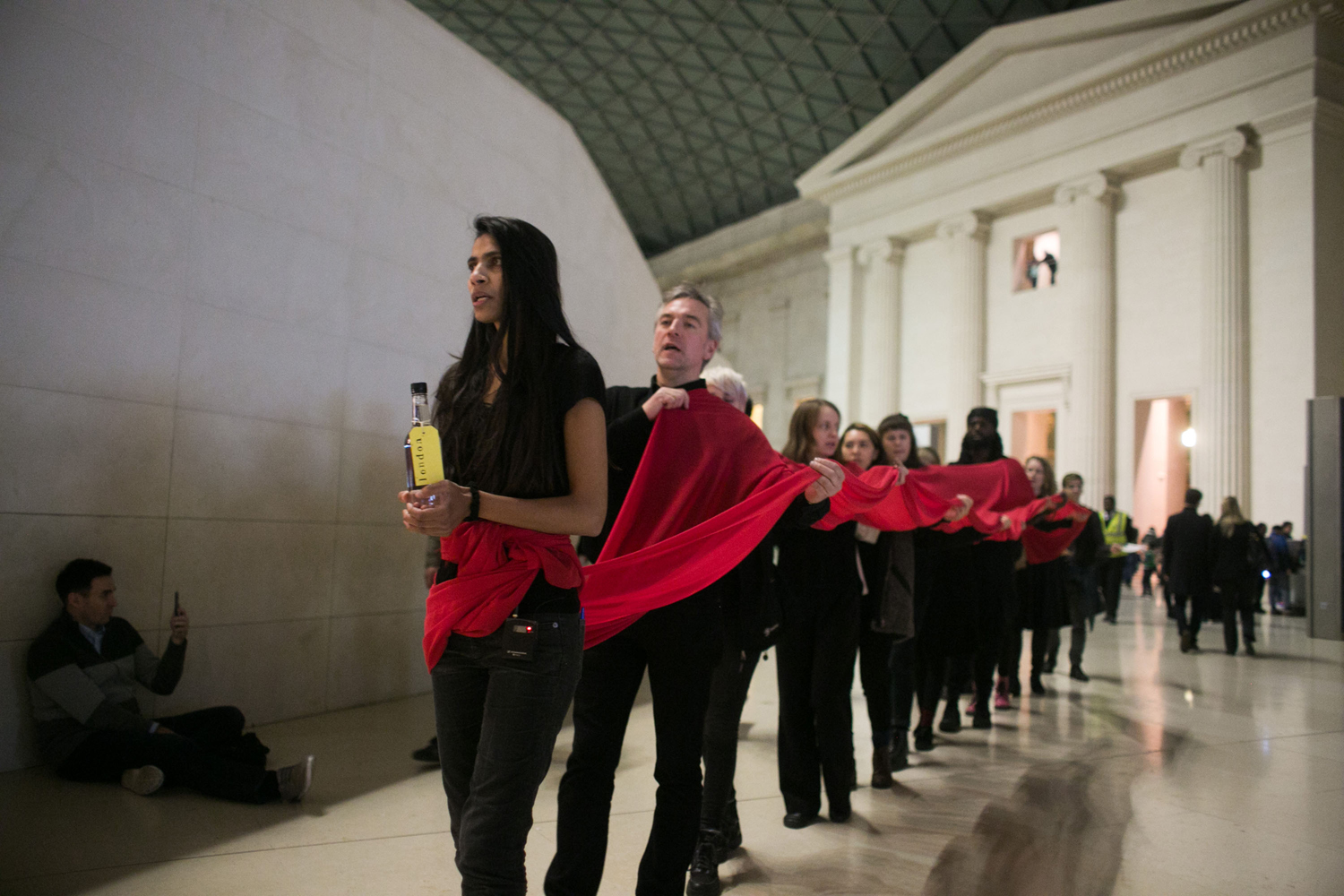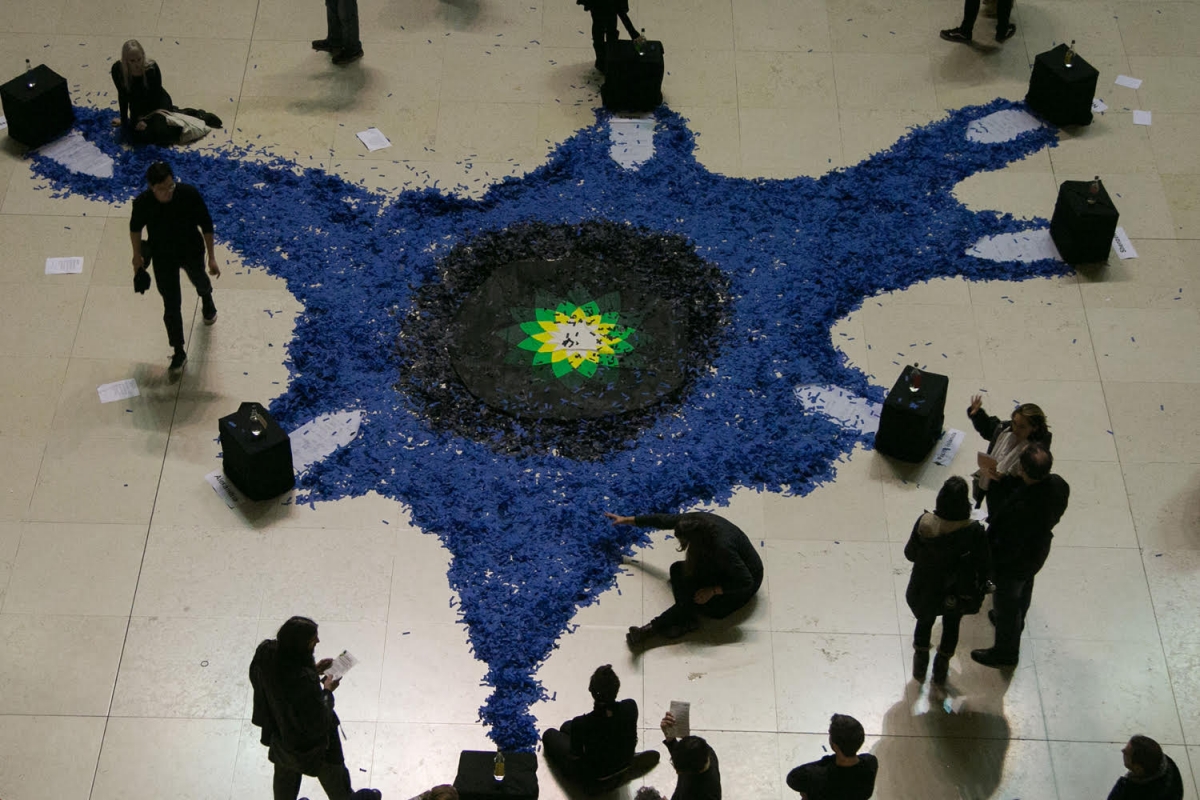Oil giant BP has been criticized for its commitment to continuing exploitation of high carbon fossil fuels, keeping the world on a path to more warming and other impacts of climate change such as rising sea levels.
So it’s somewhat ironic that they are also sponsoring an exhibition about cities subsumed by rising seas.
This weekend, 40 self-styled “actor-vists” from theatrical group BP or not BP gathered in the British Museum’s Great Hall to highlight the hypocrisy.
BP is currently sponsoring an exhibition titled “Sunken Cities: Egypt’s Lost Worlds.”
BP is one of the British Museum’s lengthiest corporate partners, supporting the museum’s public programmes since 1996. However, campaigners argue a new sponsorship deal, signed in July, is ‘illegitimate’ because the museum’s trustees had not been consulted before the controversial deal was renewed.
Following the announcement of an extended 5-year partnership, Mark Rylance and over 200 cultural figures and campaigners signed a letter published in the Times calling for the sponsorship to be dropped.
On Saturday, campaigners placed BP’s logo on the main stairway, covering the floor around it with a “flood” of black and blue strips to portray the threat to seven global cities, including Alexandria, London and New York, from rising seas.
They moved throughout the museum’s iconic galleries, weaving together poetry sent from Nigeria, a film by residents of Shenzhen, China, and holding up photographs of detained activists and journalists, who had spoken out against BP in Egypt.
“This performance today is about bringing the reality of climate change into the building, and also bringing the voices and experiences of those people directly impacted by rising sea levels in the coming decades from around the world. We’ve had poems and texts sent from people from different cities, and that’s what we’re bringing to the space,” said Chris Garrard from campaign coalition Art not Oil.
Credit: Kristian Buus ©
Kiah Jones, a 21-year-old university student who was in the audience said that she thought this type of performance, rather than a protest, could make a difference in the minds of people.
“I think the reason behind the performance is valid, I hadn’t really thought about it before —BP is a petrol company that is sponsoring an exhibition on “Sunken Cities,” she said.
“It’s good to have something that is interactive, where the public can get engaged, instead of protestors just shouting to get the message across. It’s a successful strategy.”
Garrard hopes it resonated with the Museum’s directors, too. “BP’s contribution to the museum is less than 1% of its funding, so a very small proportion. That doesn’t mean that the funding doesn’t matter but what it means is that if you are a museum with an international reputation that is iconic around the world, you can take an ethical stance and find other corporate sponsors if you wanted to”.
Main image credit: Kristian Buus ©
Subscribe to our newsletter
Stay up to date with DeSmog news and alerts








